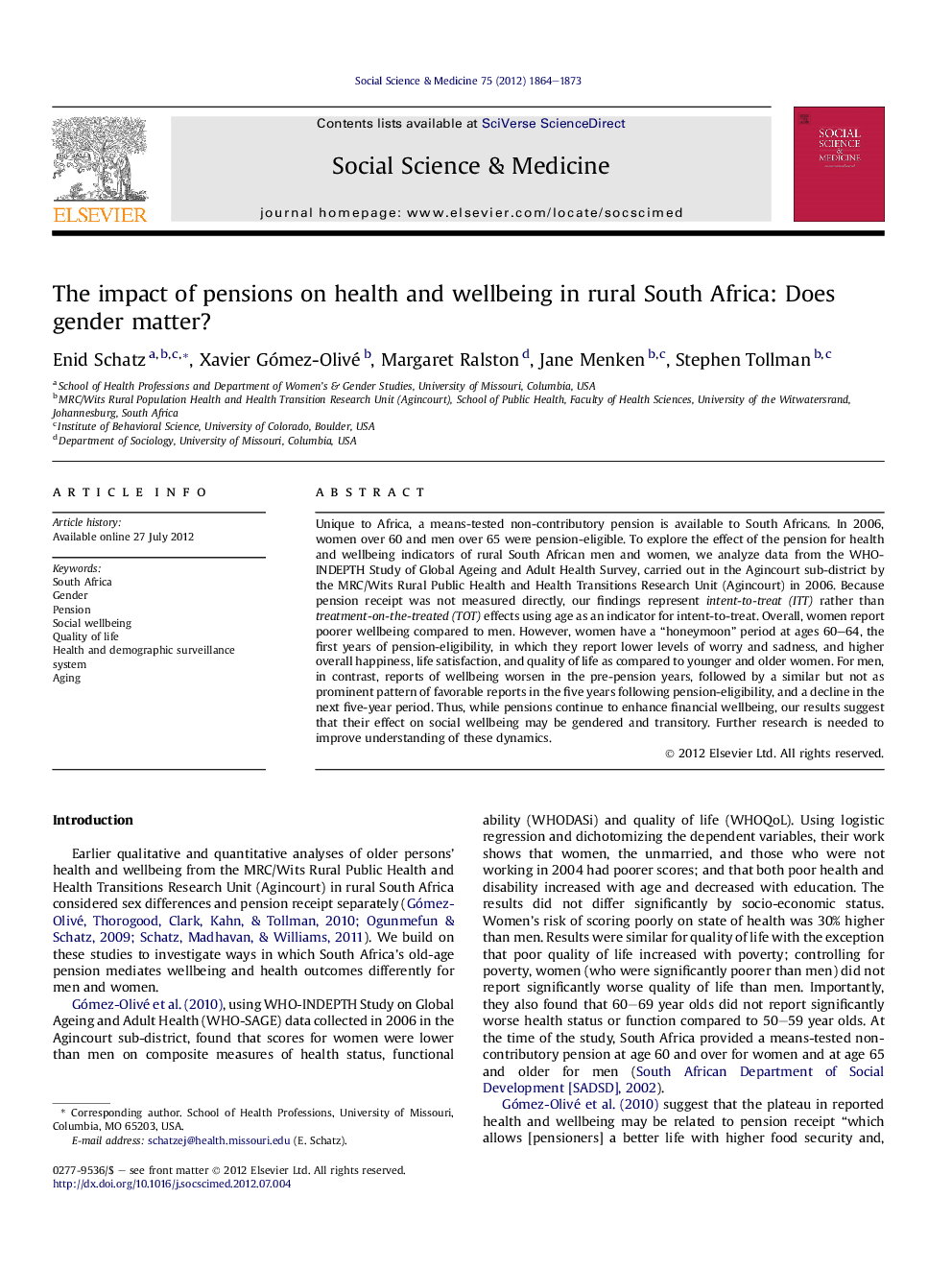| کد مقاله | کد نشریه | سال انتشار | مقاله انگلیسی | نسخه تمام متن |
|---|---|---|---|---|
| 952391 | 927505 | 2012 | 10 صفحه PDF | دانلود رایگان |

Unique to Africa, a means-tested non-contributory pension is available to South Africans. In 2006, women over 60 and men over 65 were pension-eligible. To explore the effect of the pension for health and wellbeing indicators of rural South African men and women, we analyze data from the WHO-INDEPTH Study of Global Ageing and Adult Health Survey, carried out in the Agincourt sub-district by the MRC/Wits Rural Public Health and Health Transitions Research Unit (Agincourt) in 2006. Because pension receipt was not measured directly, our findings represent intent-to-treat (ITT) rather than treatment-on-the-treated (TOT) effects using age as an indicator for intent-to-treat. Overall, women report poorer wellbeing compared to men. However, women have a “honeymoon” period at ages 60–64, the first years of pension-eligibility, in which they report lower levels of worry and sadness, and higher overall happiness, life satisfaction, and quality of life as compared to younger and older women. For men, in contrast, reports of wellbeing worsen in the pre-pension years, followed by a similar but not as prominent pattern of favorable reports in the five years following pension-eligibility, and a decline in the next five-year period. Thus, while pensions continue to enhance financial wellbeing, our results suggest that their effect on social wellbeing may be gendered and transitory. Further research is needed to improve understanding of these dynamics.
► Older South African women (aged 50-plus) report poorer wellbeing on individual indicators and composite measures than men.
► The South African non-contributory means-tested pension impacts reported health and wellbeing.
► Women report better wellbeing during a striking “honeymoon” period in the first years of pension-eligibility (ages 60–64).
► Men’s wellbeing drops pre-pension eligibility (ages 60–64), increases at pension-eligibility (65–69), then declines (70–74).
► Pensions may enhance financial wellbeing, but our results show their effect on social wellbeing is gendered and temporary.
Journal: Social Science & Medicine - Volume 75, Issue 10, November 2012, Pages 1864–1873